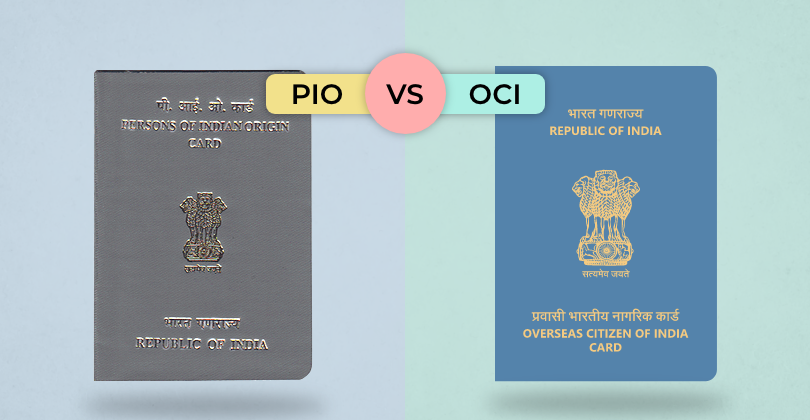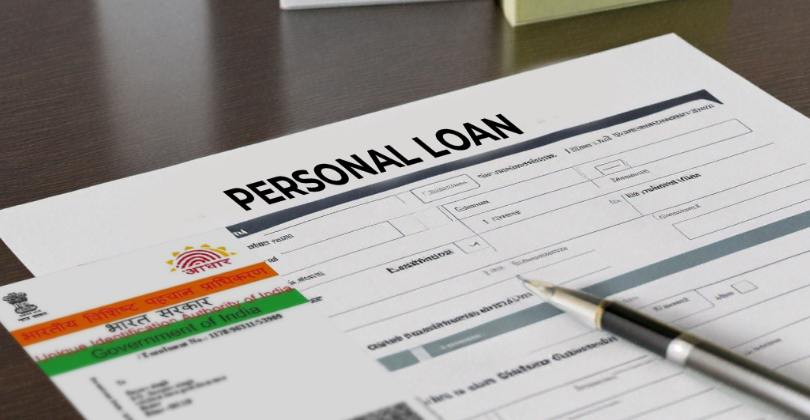Are you of Indian origin and living abroad? You've probably come across terms like PIO and OCI. These cards offer different benefits, but it can
Starting a business is a thrilling endeavour that demands meticulous preparation, commitment, and frequent monetary investment. Getting a personal loan for business is a typical way in which business owners finance their new companies.
Although personal loans can be a convenient and adaptable source of money, there are crucial factors to consider before taking this route.
This post will cover 10 important things you should know before taking a personal loan to start a business.
📗 Related reading- How To Use A Personal Loan For Business Purposes?
The Entrepreneur's Perspective
The allure of entrepreneurship lies in the opportunity to bring novel ideas to fruition and create lasting change. Yet, marrying passion with financial prudence is essential for a successful launch. Here are two crucial perspectives on the entrepreneur's side:
-
Aligning Passion with Practicality
Innovation thrives on passion, yet anchoring dreams within financial realities is crucial. Before securing a personal loan, evaluate your business plan's feasibility against your financial landscape. Could a more modest investment achieve the initial goals? Pragmatic steps can prevent undue financial strain, ensuring your vision evolves sustainably.
-
Defining Success Beyond Funding
While a personal loan facilitates business initiation, success transcends finances. Entrepreneurs gauge success through impact, customer value, and growth prospects. Before committing to a loan, define the broader dimensions of success. Identify long-term objectives and metrics that extend beyond funding, aligning your venture's progress with your vision.
The Lender's Perspective
Lenders play a pivotal role by assessing business viability and extending necessary funds. They weigh risks against rewards in their evaluation. Here's how lenders perceive the decision to grant a personal loan for a business:
-
Business Viability and Repayment Capacity
Lenders prioritise the viability of your business plan and repayment capacity. They scrutinise market demand, competitive edge, and sustainable growth potential. Presenting a clear revenue strategy and repayment plan is vital. Provide comprehensive financial projections outlining profitability and loan coverage.
-
Entrepreneurial Experience and Credibility
Lenders gauge your entrepreneurial experience and credibility. Your track record, industry insights, and adaptability impact your decision. A history of success or relevant expertise enhances credibility, assuring lenders of your commitment. Conversely, a lack of experience could raise concerns about navigating business challenges.
10 Things to Consider Before Starting a Business With a Personal Loan
Now, let's delve into the ten vital considerations encompassing both perspectives that will provide you with a fair idea:
-
Assess Your Financial Situation
Before taking out a personal loan for your business, it's crucial to have a comprehensive understanding of your financial standing. Evaluate your credit score, outstanding debts, and current financial commitments.
A reliable credit history will increase your chances of securing a loan at favourable terms. Knowing your financial health will help determine the loan amount you can comfortably repay.
-
Business Plan Clarity
Regardless of how you finance your business, a well-thought-out business plan is essential. A clear and detailed business plan becomes even more critical when seeking a personal loan.
Lenders want to see that you have a viable business idea, a strategy for growth, and a solid plan for repaying the loan. A convincing business plan can improve your credibility and increase your chances of loan approval.
-
Loan Amount and Repayment Terms
Decide on the funding you need for your business and create a realistic repayment plan. Avoid borrowing more than necessary, as this could lead to unnecessary debt and strain on your finances.
Carefully consider the repayment terms offered by the lender, including the interest rate, monthly instalment, and loan tenure. Ensure that the repayment schedule aligns with your business's expected cash flow.
-
Interest Rates and Fees
Personal loans for business purposes often come with varying interest rates and associated fees. Researching and comparing rates from varied lenders is crucial to finding the most favourable terms.
Lower interest rates can remarkably reduce the overall cost of the loan. Additionally, be aware of any origination fees, prepayment penalties, or other hidden charges that could impact the loan's affordability.
-
Collateral and Personal Guarantee
Depending on the lender and your creditworthiness, you may be required to provide collateral or a personal guarantee for the loan. Collateral is a safety asset that the lender can seize in case of loan repayment failure.
A personal guarantee means you are personally accountable for repaying the loan, even if the business fails. Be sure to understand these requirements' potential risks and implications before proceeding.
-
Impact on Personal Credit
Using a personal loan for business purposes can impact your personal credit score. Timely repayments can positively affect your credit, but missed payments or defaulting on the loan can harm your creditworthiness. Understand that your personal and business finances may become intertwined, potentially affecting your ability to secure future loans or credit lines.
-
Business Viability and Risk Assessment
Entrepreneurship inherently involves risk, and using a personal loan adds an extra layer of financial vulnerability. Conduct a thorough risk assessment of your business idea and industry to identify potential challenges and opportunities.
Consider factors such as market demand, competition, and economic trends. A realistic view of your business's viability will help you make informed decisions and mitigate potential pitfalls.
-
Contingency Plan
No business venture unfolds precisely as planned. It's wise to have a contingency plan if things don't go as expected. A personal loan comes with the responsibility of repayment, even if your business faces setbacks or doesn't achieve the projected results.
Ensure you have a safety net, savings, or alternative income sources to cover loan payments during challenging times.
-
Legal and Tax Implications
Starting a business involves legal and tax considerations that can impact your personal finances. You might have legal obligations and tax liabilities depending on your business structure.
Consulting with legal and financial professionals can help you navigate these complexities and ensure compliance with regulations. Failing to address legal and tax matters can lead to financial and legal complications down the road.
-
Alternative Funding Options
While a personal loan can be a viable funding option, it's essential to explore alternative sources of financing as well. Crowdfunding, angel investors, venture capital, and small business loans specifically designed for startups are among the options available.
Each option has advantages and drawbacks, so thoroughly research and choose the one that best aligns with your business's needs and goals.
Conclusion
Starting a business with a personal loan can provide the capital to realise your entrepreneurial dreams. However, it's crucial to approach this decision with careful consideration and preparation.
Assess your financial situation, develop a clear business plan, research interest rates and fees, and be aware of the potential impact on your personal credit. Additionally, thoroughly evaluate the viability of your business idea, have a contingency plan in place, and understand the legal and tax implications.
Finally, explore alternative funding options to make an informed choice that sets your business up for success. Remember, a successful business launch requires not only financial resources but also thoughtful planning and a commitment to adapt and overcome challenges along the way.
AUTHOR
KreditBee As a market leader in the Fintech industry, we strive to bring you the best information to help you manage finances better. These blogs aim to make complicated monetary matters a whole lot simpler.







